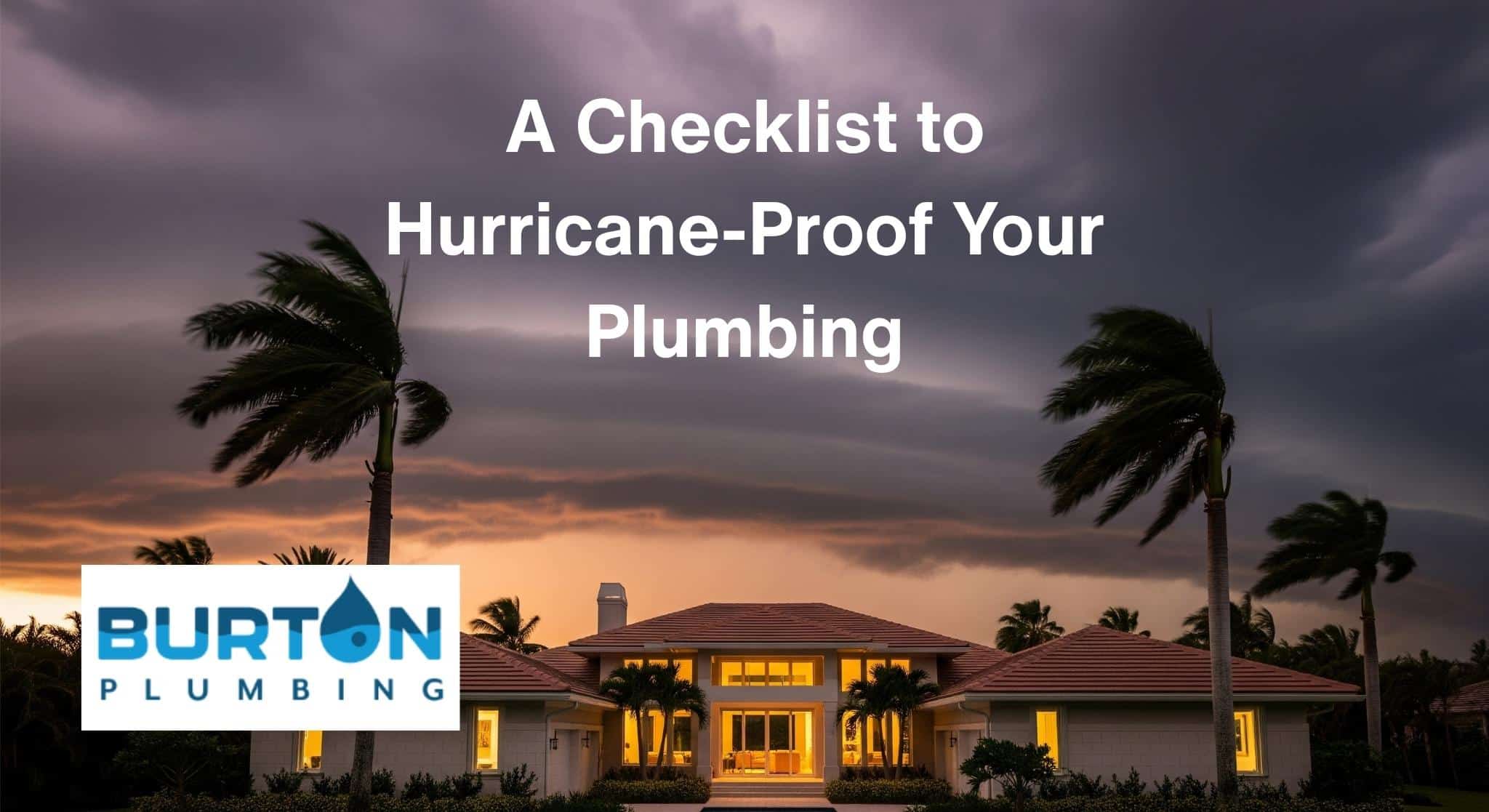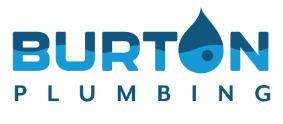
For those of us living in Brevard County, hurricane season is a familiar rhythm of life. We stock up on batteries, board up windows, and keep a close eye on the tropics. But in the midst of all that preparation, one critical system is often overlooked: your home’s plumbing.
A hurricane’s high winds and torrential rain can put immense stress on your pipes, drains, and water heater. Taking a few simple steps now can prevent catastrophic damage, save you thousands of dollars, and ensure your family’s comfort and safety.
This is your ultimate hurricane plumbing preparedness checklist from the local experts at Burton Plumbing.
Before the Storm: Your Action Plan
1. Know How to Shut Off Your Water Main
This is the single most important step. If a pipe bursts during a storm, being able to shut off the water to your house is critical to preventing a full-blown flood.
- Locate it now: Your water main shut-off valve is typically located where the water line enters your home, often in a utility closet, the garage, or outside in a ground-level box.
- Test it: Make sure you can turn the valve. If it’s stuck, call a professional to service it before a storm is on the way.
- Label it: Clearly label the valve with a bright tag so anyone in your family can find it in an emergency.
2. Test Your Sump Pump
If you have a basement or crawl space, your sump pump is your first line of defense against flooding. Proper sump pump maintenance is non-negotiable.
- Pour water into the sump pit to ensure the pump kicks on automatically.
- Check the battery backup. The power will likely go out during a storm; a battery backup ensures your pump keeps working.
- Clear the discharge line of any dirt or debris to ensure water can be pumped away from your foundation.
3. Clear Drains, Gutters, and Downspouts
This simple task is key to preventing storm drain backup and localized flooding around your home. Remove leaves, dirt, and debris so rainwater can flow freely away from your property, reducing pressure on your foundation and sewer lines.
4. Secure Your Water Heater
An unsecured water heater can tip over during heavy winds or flooding, breaking gas or water lines and creating a dangerous situation. Ensure your water heater is properly strapped and secured according to local codes.
5. Inspect Your A/C Condensate Drain Line
An overflowing A/C drain line is another common source of indoor water damage, especially when the system works overtime after a power outage. Ensure the line is clear and draining properly. For a full guide on this common issue, read our post on what to do if your A/C is leaking water because of a clogged drain line.
6. Fill Bathtubs and Containers
If officials issue a “boil water” notice after the storm, or if the water is shut off entirely, you’ll need a supply of safe water for sanitation (flushing toilets, washing hands) and for drinking. Fill your bathtubs and any large, clean containers before the storm arrives.
During the Storm: Stay Safe
The best thing you can do is stay off the roads and listen to the advice of local officials. Avoid using your plumbing if possible to reduce the strain on the municipal sewer system, which may be overwhelmed by floodwater.
After the Storm: Inspect and Assess
Once it’s safe to go outside, it’s time to check for damage.
- Walk your property: Look for visible signs of damage to pipes, faucets, and drains.
- Check for leaks: Before turning your water main back on, check for any obvious leaks inside. When you do turn it on, do it slowly and listen for the sound of running water when all fixtures are off.
- Look for signs of sewer line issues: Gurgling drains, foul odors, or slow-draining fixtures could indicate damage to your main sewer line from ground shifts or tree roots. You may need to call a professional to inspect your sewer line for repairs.
- Listen for boil water notices: Do not drink tap water until Brevard County authorities have confirmed it is safe to do so.
When to Call a Professional
Some issues require immediate expert attention. If you notice any of the following, it’s time to call an emergency plumber in Melbourne:
- You smell natural gas.
- You see or hear a major leak.
- Your drains are backing up into the house.
- You have no water at all, even after the “all clear” is given.
Don’t Wait Until It’s Too Late
Preparedness is the key to weathering any storm. If you need help inspecting your system, repairing a stuck valve, or dealing with damage after a hurricane, Burton Plumbing is here for you. We are your local Brevard County experts, ready to help keep your home and family safe.
For immediate help with post-storm damage or other urgent needs, contact our emergency plumbing team 24/7. Call Burton Plumbing today at 321-477-4383 !

